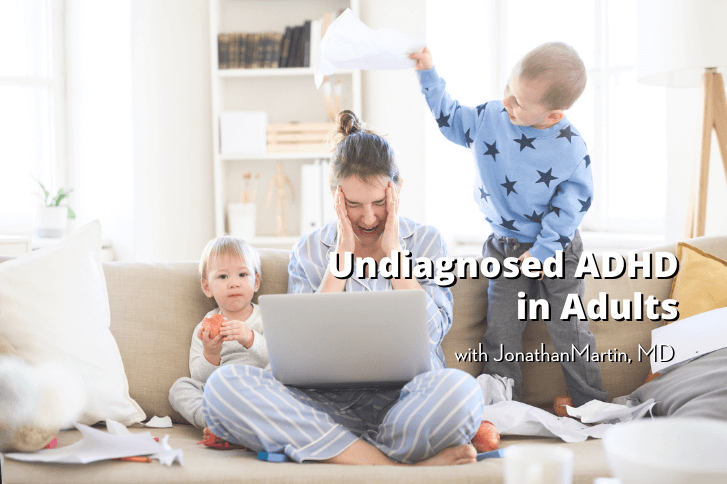Adult ADHD Diagnosis & Treatment

When people hear the term ADHD (attention deficit hyperactivity disorder), they tend to think of the stereotypical child, typically a boy, who can’t sit still, is hard to keep on task in the classroom and is easily and continuously distracted. What they may not know is that many adults have ADHD, too, and the condition can be just as problematic in adulthood as childhood.
Adult Attention Deficit Hyperactivity Disorder (ADHD)
There are three forms of ADHD:
- ADHD, Primarily Inattentive Type. This type causes trouble focusing and maintaining sustained attention. It does not involve hyperactivity or uncontrolled thoughts or actions.
- ADHD, Primarily Hyperactive-Impulsive Type. The symptoms of this type of ADHD are what people tend to think of with the disorder, including the very high energy level, being easily distracted, etc.
- Combined Type ADHD. People with this type of ADHD have symptoms from both of the other types.
It is important to keep in mind that while children with ADHD behave in whatever way their disorder compels them to, adults typically learn to restrain themselves. However, being able to control your actions does not mean that you do not have ADHD. The thoughts and impulses behind the actions are where the problem lies.
Symptoms of Inattentive and Hyperactive-Impulsive ADHD Types
If you have the “inattentive” type of ADHD, you may find that you:
- Are easily distracted
- Struggle to pay attention to details
- Have a poor memory
- Have problems with time management
- Are disorganized
- Often do not complete tasks
- Are perceived by others as not listening to them
- Dislike and avoid tasks that require sustained focus and mental effort
- Get distracted while driving
- Find mundane daily tasks to be especially difficult to complete
With the “hyperactive” type of ADHD, you likely:
- Struggle to sit for any significant length of time
- Are always on the go
- Feel continual restlessness
- Are very talkative
- Find waiting challenging
- Interrupt when others are talking
- Drive faster than the speed limit
- Are impatient with others who do things slowly
- Make decisions rapidly
- Speak impulsively, sometimes offending others
Diagnosing and Treating Adult ADHD
Diagnosing ADHD is challenging, as there is no blood test or other definitive measures. Instead, a health professional who is familiar with the condition uses interviews, questionnaires, intellectual screenings, as well as measurements of distractibility and sustained attention to make the diagnosis. This requires special expertise since ADHD’s symptoms can mimic those of other conditions like depression, sleep issues, and learning disabilities.
The treatment for adult ADHD is different for every patient but can include education, counseling, stimulant medication, and other medication. Lifestyle factors play a role as well, with activities like regular exercise and stress reduction techniques being helpful.
Addressing adult ADHD can be challenging. However, there are effective treatments that help patients lead happier, less stressful, and more productive lives.
At Baptist Health, we have experience in helping adults with ADHD find relief. Find a Behavior Health Provider for more information.



